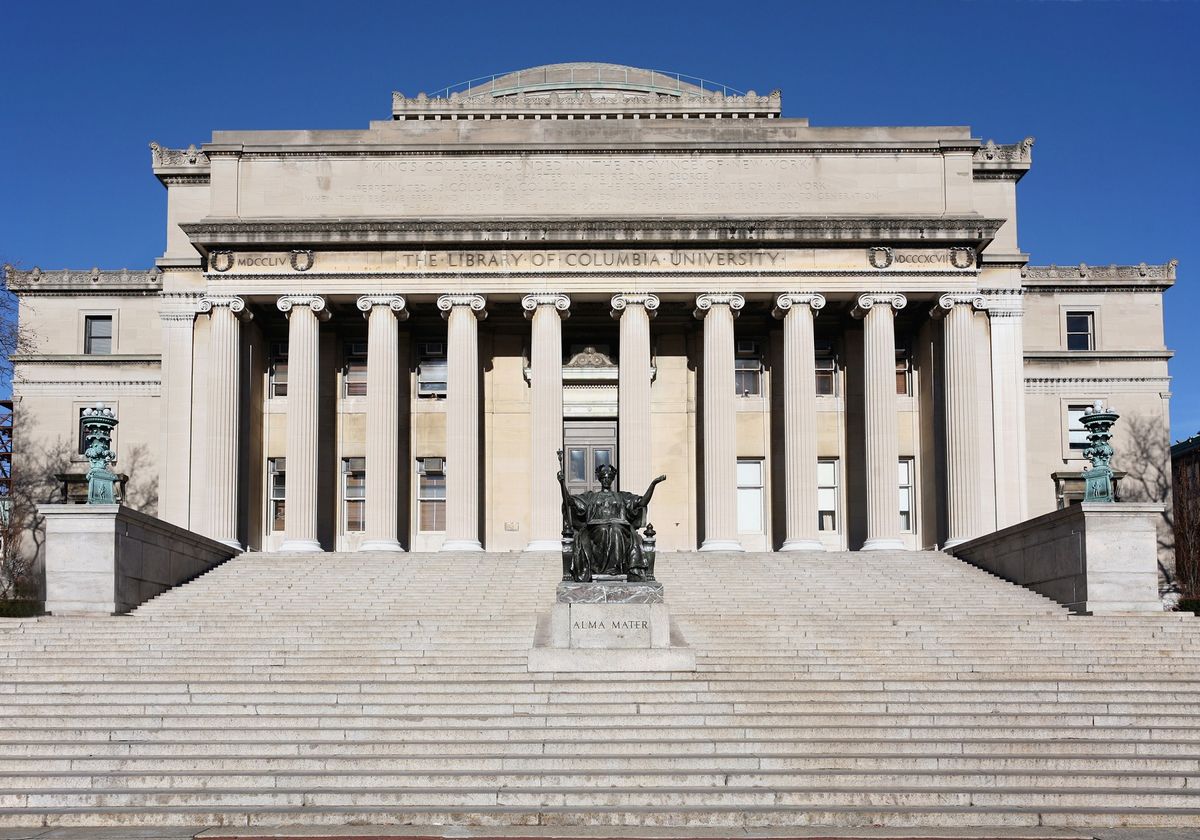What are the Best Majors at Columbia?
Over the centuries, Columbia has adapted to the changing needs of society, but its dedication to pushing intellectual boundaries remains unwavering. While all of its academic programs are noteworthy, certain majors have consistently stood out, either due to historical significance, research opportunities, faculty expertise, or the successes of their alumni. Let’s delve deeper into some of the best majors at Columbia University and understand what makes them the best at this Ivy League institution.
Why Does the ‘Best Major’ Matter?
The question of why the ‘best major’ matters is not one to be taken lightly. You see, the major you choose doesn’t just dictate the classes you’ll take for the next four years; it sets the trajectory for your entire life.
Think of it as the cornerstone upon which you’ll build your future—a future that could be teeming with opportunities or fraught with challenges, depending on your choice.
The best majors at Columbia offer a blend of rigorous academic training, unparalleled research opportunities, and a network of alumni who are leaders in their respective fields.
These factors collectively contribute to making a ‘best major,’ one that equips you with the skills to excel in the job market and prepares you for the intellectual challenges of the real world.
Importance of Choosing the Right Major for Career Prospects
Let’s get down to brass tacks: Your career prospects are a significant factor in determining what could be considered among the best majors at Columbia. In today’s competitive job market, the major you choose can be your ticket to a high-paying job or, conversely, a stumbling block in your career progression.
Majors like Computer Science, Engineering, and Business often lead to lucrative job offers right out of college, thanks to Columbia’s strong industry connections and stellar job placement services. However, it’s not just about the money; it’s about job satisfaction and growth potential.
A major that aligns with your skills and interests will make your college years more enjoyable and prepare you for long-term career success.
Role of a Major in Shaping One’s Intellectual Journey
But let’s not forget the best majors at Columbia are not solely about career prospects; they play an indispensable role in shaping your academic journey. Imagine diving into the intricacies of human behavior in a Psychology class or unraveling the mysteries of the universe in an Astrophysics lecture.
These experiences do more than fill your head with facts; they shape your worldview, hone your critical thinking skills, and ignite your passion for lifelong learning. Your major serves as a lens through which you explore the world, offering you a unique perspective that you’ll carry with you long after you’ve left the hallowed halls of Columbia.
So, as you ponder the best majors at Columbia, consider the job you want in the future and the person you want to become.
What are the Best Majors at Columbia University?
In addition to its highly regarded Business School, Teachers College, Law School, and College of Physicians and Surgeons, Columbia University in New York City is home to three undergraduate schools: Columbia College, The Fu Foundation School of Engineering and Applied Science, and the School of General Studies.
While all programs at Columbia are distinguished in their own right, several shine exceptionally bright due to their unique attributes, history, and notable alums they’ve produced. Let’s explore a few of these standout programs.
Below are some of Columbia University’s best majors:
Literature and Writing
The Columbia School of the Arts is home to one of the nation’s top MFA programs in creative writing. The program’s strength draws from its renowned faculty and location, which provides endless inspiration and networking opportunities.
Beyond the MFA, Columbia’s undergraduate literature courses are some of the most challenging and rewarding, with the Core Curriculum’s focus on classics ensuring that all students have a deep grounding in foundational texts.
Journalism
The Columbia Graduate School of Journalism is often considered the gold standard for journalism education worldwide. As the birthplace of the Pulitzer Prizes, it’s no surprise that many of its alumni have gone on to win these prestigious awards. The school emphasizes a hands-on approach, ensuring students get real-world newsroom experience and reporting live events.
Economics and Business
Columbia’s Economics department is one of the leaders in global research and thought leadership. Its proximity to Wall Street provides students unparalleled access to internships, networking events, and post-graduation job placements.
The business program, represented by the eminent Columbia Business School, consistently ranks among the top MBA programs in the world, with an alum network that reads like a Who’s Who of the business world.
Political Science
Given its location in one of the world’s major political and diplomatic hubs, Columbia is a prime destination for studies in political science. Its faculty boasts renowned scholars, and students can access numerous international organizations, NGOs, and think tanks based in NYC.
The study of global affairs is further bolstered by the School of International and Public Affairs (SIPA), one of the world’s premier institutions for policy studies.
Sciences
Columbia’s prowess isn’t limited to the humanities. Its science programs, mainly Physics, Environmental Science, and Neuroscience, have significantly contributed to global knowledge. The close relationship with the nearby Lamont-Doherty Earth Observatory ensures that geoscience students get hands-on experience with global challenges like climate change.
Humanities and Social Sciences
Columbia’s Core Curriculum ensures that every undergraduate delves deep into philosophy, history, music, and art. This comprehensive education ensures that Columbia graduates are well-versed in their chosen fields and have a broad understanding of human culture and society.
While it’s tempting to label specific majors as “the best” based on certain metrics, it’s essential to understand that Columbia’s strength lies in its holistic approach to education. The University believes in the interconnectivity of disciplines and encourages its students to cross traditional academic boundaries.
Ultimately, the “best” major is subjective and depends on an individual’s passion, career goals, and interests. The true testament to Columbia’s excellence is not just in the programs themselves but in its commitment to fostering critical thinking, creativity, and global citizenship among its students.
How Do You Decide on a Major?
One of the most critical choices that a high school or college student must make is selecting a concentration of study. It is one that many people wish they could retake; according to one survey, 61% of college graduates would switch majors if they could return to school.
However, not everyone suffers from a case of buyer’s remorse when they receive their diploma. The following is a list of the most significant considerations to make when selecting the best majors at Columbia or any other school, as well as advice on choosing the appropriate college once you have made your selection.
Consider Your Skills
Create a list of your accomplishments and areas of interest to get started. After you’ve finished, inquire with your closest loved ones and friends about what they would say about you. Sometimes, we need a third party to point out the qualities and abilities we sometimes take for granted.
Include any subjects that have always piqued your curiosity but that you’ve never committed to studying in depth. You should also mention things you used to be good at but haven’t done in a while, especially if you haven’t done them.
Investigate Possible Professions
When you have a list of your interests and passions, the next step is to investigate what kinds of professions meet those interests. For instance, if you have a passion for music, you could pursue a career as a music instructor or a club promoter or look for work at a charity organization dedicated to music.
After compiling a list of possible employment lines, you should consider observing those currently employed in those positions to get a feel for what it’s like to do the job. Following the processes that people carry out will help you determine whether or not you are engaged in the endeavor. If seeing someone on the job isn’t possible, you can contact folks via email or LinkedIn and set up a phone call to ask them questions.
Estimate Future Earnings
Most careers have their progression tracked by the Bureau of Labor Statistics. Visit the site and choose the professional fields that interest you most. You will be able to discover what employment is available in each sector from that location.
After compiling a list of occupations that pique your interest, you can use the site to determine which fields have a positive growth rate and incomes commensurate with the lifestyle you intend to lead.
Even if the amount of money you will make in the future is not the only thing you should consider while choosing a career path, it is still essential. Having this knowledge can assist you in determining how much of an investment it is prudent to make in your secondary schooling.
Consider what you want your life to be like once you graduate from college. For example, if you want to establish a family, reside in a major city, or do substantial traveling, you will need a career that pays well enough to afford those things.
Consider How Much to Invest in Your Studies
It’s not true that all majors are created equal. There is a significant difference in the effort required for various programs. Think about how much time you can devote to your training and how committed you want to be as a student.
Research any advanced degrees you may require after you graduate college if you want to work in the field that interests you. Before you decide on what you want to study for your bachelor’s degree, it is essential to consider whether or not you will need to move on to earn a professional or master’s degree to achieve the professional goals you have set for yourself.
What are Your Chances of Getting Into Columbia?
To be considered and get into the best majors at Columbia, you should know first that the acceptance rates of schools in the Ivy League are notoriously competitive. Less than 4% of candidates were chosen to join the Class of 2026 at Columbia University.
It would appear that these meager acceptance rates are the new standard. Only 40,083 students applied for admission during the 2019-2020 application cycle, and only 6.15% received acceptance letters. The number of applicants has remained consistently low over the past two years and is substantially lower than that.
The average SAT score at Columbia falls between 1510 and 1560, and the average ACT score between 34 and 35. According to the national rankings compiled by U.S. News, the educational establishment currently shares second place with Harvard University and the Massachusetts Institute of Technology (MIT).
If you want to know how to get into Columbia University, you should first understand that all of the schools in the Ivy League are considered to be within “reach” for students. It will require more than just having a grade point average, or SAT score comparable to the standard at Columbia to gain admission there.
Start preparing for college applications while in high school to give yourself the best possible chance of getting in. This involves aiming for a high-grade point average and scores on standardized tests, exhibiting interest and leadership in extracurricular activities, and beginning your application, particularly the Columbia supplemental essays, well before the deadline for the Columbia application.
If you have a compelling candidate profile, you may be able to beat the acceptance rate at Columbia. Essentially, this is the story you tell through the activities, projects, and services you participate in outside school.
Another critical component that needs to be ready before the application deadline for Columbia is letters of recommendation. You should develop relationships with your instructors immediately on the first day of class.
Provide a list of your extracurricular activities to the people you ask to write your letters of recommendation when you do so. Include in your essay the reasons you want to attend Columbia as well as the reasons you want to pursue your desired field of study.
Suppose you need help getting into the best majors at Columbia or help putting the finishing touches on your college applications at AdmissionSight. In that case, we have over ten years of experience guiding students through competitive admissions.
AdmissionSight can help you put your best foot forward when applying to college this fall. Contact us today for more information on our services.










































